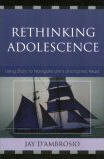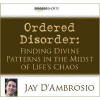
The Greek sailors who ventured with Odysseus had trusted their commander through thick and thin, through the tortuous years of the Trojan War and beyond. However, nothing could have prepared them for the terror they were about to endure on one ominous island that awaited the landing of their ships. Odysseus had already rescued his men from the perils of the lotus fruit and the narcotic apathy that it offered. Still coming down from the high of the intoxicating plant, the crew grumbled mightily. They argued that Odysseus should have left them to their peace and not dragged them back to sea. They were hungry and feeling mutinous. Odysseus, though not wanting to land on any of the nearby islands, was forced into a position where he had to make landfall or face the consequences of an increasingly unhappy crew. In the foggy blue of the Aegean Sea, a rocky island appeared slowly from the mist. Odysseus and a small company of his men set out to explore the island, searching for food and supplies.
Not long after setting foot on the mountainous island, one of the men spotted what appeared to be a herd of sheep moving across a rocky outcropping. The men ran after this wandering meal with the fervor brought on by intense hunger. Unfortunately for Odysseus, something else watched his men from the shadows of a high cave, waiting with an even more insatiable appetite for the meal that was running his way.

The Greeks pursued the sheep up the rocky clefts in the mountain until they came to a great cave. Hearing the bleating of the sheep from within the vast cavern, the men cautiously entered. As their eyes adjusted to the gloom and darkness, they saw a fire pit with great spits that roasted several goats. The aroma drifting from the open pit was too much for the men to take! They sprinted inside the cave and began stuffing their mouths with the succulent meat and sizzling fat. The feeling that they were but mice in a horrible trap, however, plagued Odysseus.

Without warning, an enormous stone was rolled in front of the entrance to the cave, plunging the Greeks into thick darkness. Only the fire pit cast an orange glow on the walls of the cave, making shadows dance like fearful demons. Then from the darkness emerged a sight so abhorrent and terrible that it reduced the brave Hellenic fighters to yelping children. A huge, monstrous, humanlike figure with gleaming teeth and one huge eye in the middle of its forehead stepped into the center of the cave. A massive hand reached down and lifted two of the sailors into the air with ease and stuffed them into the giant’s crushing mouth. The screaming men were eaten alive, bones and all! Growling and snarling, the monster reveled in the sheer ter ror he generated. The rest of the crew cowered in utter fear before the giant Cyclops.
Odysseus, his nimble mind always scheming, decided to entreat the monster. He called out to the Cyclops, drawing the fearsome giant into a conversation. Odysseus asked for the monster’s name. The Cyclops responded that his name was Polyphemus, and said that he and his brothers owned this island that the Greeks had stumbled upon. At that moment, he reached down and laid hold of another terrified sailor.

Determined not to lose any more of his men to this colossal horror, Odysseus intervened. Bernard Evslin provides an admirable paraphrase of this intercession in The Adventures of Ulysses. “Wait!” he cried. “Why?” asked the Cyclops. “Well,” the king responded, “that man you are about to eat was raised on olives and has an oily taste. You will not enjoy him without the taste of wine.” Confused, Polyphemus retorted that he was not familiar with “wine.” Odysseus continued, “Wine! It is the drink of the gods. Here, it is my gift to you.” With that, Odysseus handed the giant a substantial flask of the cordial. As the giant drank the wine, he asked Odysseus for his name. The clever king of Ithaca responded, “My name . . . is nobody.” “Well Nobody, “replied Polyphemus. “I like you. Therefore, I will eat you last.” As the Cyclops imbibed more and more wine, he became sleepier and sleepier, until finally the great body collapsed upon the cave floor and the sounds of mighty snoring ensued.

Odysseus commanded his sniveling men to go to either side of the giant’s mighty head. The king set the blade of his sword in the embers of the fire until it turned red hot. He then ordered his men to hold tightly to the huge ears of the sleeping giant to steady his head. With one powerful move, Odysseus plunged the glowing blade deep into the Cyclops lone eye! Awakened by the blow, Polyphemus wailed and thrashed about in agony. The Greeks hid among the sheep of the cave in a desperate attempt to avoid the reach of the now blinded monster. As suddenly as the wailing and groaning of the Cyclops began, it stopped, leaving the cave in deafening silence. The Greeks, hidden among the sheep, held their breath, as the giant listened quietly for the sounds that might lead him to the men who had left him so impaired.

Hearing only the bleating of the sheep, Polyphemus rolled the huge boulder away from the cave entrance, knowing that the sheep would instinctively exit the cave, leaving behind the men for whom his great wrath was now burning ferociously. Understanding the giant’s plan, Odysseus quietly ordered his men to cling to the bellies of the sheep as they left the cave, allowing them to flee undetected from the presence of the Cyclops. Looking back as he ran to freedom, Odysseus noticed several other tremendous figures converging on the cave, obviously the other Cyclopes, drawn by the bellowing of their wounded brother. “Who did it?” the other giants roared. “Who has blinded you?” Still in considerable agony, Polyphemus replied, “Nobody has blinded me!” “So you have done it yourself?” the others said. “What a terrible accident!”
 Fearing for Loved Ones
Fearing for Loved Ones
 If you suspect that a young person is struggling with fears such as this, it is helpful to arrange for a private meeting. There, in an environment of caring and confidentiality, the student can share what is really on his mind. Allow the student to share with little input from you. Simply listen. Sometimes the best thing we can do for a young person in this situation is to be a listening ear.
If you suspect that a young person is struggling with fears such as this, it is helpful to arrange for a private meeting. There, in an environment of caring and confidentiality, the student can share what is really on his mind. Allow the student to share with little input from you. Simply listen. Sometimes the best thing we can do for a young person in this situation is to be a listening ear.
 The Greek sailors who ventured with Odysseus had trusted their commander through thick and thin, through the tortuous years of the Trojan War and beyond. However, nothing could have prepared them for the terror they were about to endure on one ominous island that awaited the landing of their ships. Odysseus had already rescued his men from the perils of the lotus fruit and the narcotic apathy that it offered. Still coming down from the high of the intoxicating plant, the crew grumbled mightily. They argued that Odysseus should have left them to their peace and not dragged them back to sea. They were hungry and feeling mutinous. Odysseus, though not wanting to land on any of the nearby islands, was forced into a position where he had to make landfall or face the consequences of an increasingly unhappy crew. In the foggy blue of the Aegean Sea, a rocky island appeared slowly from the mist. Odysseus and a small company of his men set out to explore the island, searching for food and supplies.
The Greek sailors who ventured with Odysseus had trusted their commander through thick and thin, through the tortuous years of the Trojan War and beyond. However, nothing could have prepared them for the terror they were about to endure on one ominous island that awaited the landing of their ships. Odysseus had already rescued his men from the perils of the lotus fruit and the narcotic apathy that it offered. Still coming down from the high of the intoxicating plant, the crew grumbled mightily. They argued that Odysseus should have left them to their peace and not dragged them back to sea. They were hungry and feeling mutinous. Odysseus, though not wanting to land on any of the nearby islands, was forced into a position where he had to make landfall or face the consequences of an increasingly unhappy crew. In the foggy blue of the Aegean Sea, a rocky island appeared slowly from the mist. Odysseus and a small company of his men set out to explore the island, searching for food and supplies.





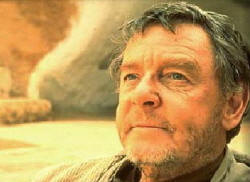 What can story teach us about this dilemma? Through the recent production of three prequel episodes—The Phantom Menace, Attack of the Clones, and Revenge of the Sith—a new generation is discovering the magic and wonder of Star Wars, a movie saga that began in 1977. Let’s take a closer look at that original episode, A New Hope, and mine it for wisdom that might pertain to the matter at hand.
What can story teach us about this dilemma? Through the recent production of three prequel episodes—The Phantom Menace, Attack of the Clones, and Revenge of the Sith—a new generation is discovering the magic and wonder of Star Wars, a movie saga that began in 1977. Let’s take a closer look at that original episode, A New Hope, and mine it for wisdom that might pertain to the matter at hand.  There is nothing inherently wrong with peer groups or cliques. They are common to every middle and high school, typically based on friendships and mutual interests. However, they do have the potential to twist and mold an adolescent into their own image. The coming-of-age movie The Breakfast Club (1985) illustrates this state of affairs in an entertaining yet poignant way. The entire movie takes place in a Saturday detention hall in a suburban Chicago high school. Represented is one member of each social group in the school.
There is nothing inherently wrong with peer groups or cliques. They are common to every middle and high school, typically based on friendships and mutual interests. However, they do have the potential to twist and mold an adolescent into their own image. The coming-of-age movie The Breakfast Club (1985) illustrates this state of affairs in an entertaining yet poignant way. The entire movie takes place in a Saturday detention hall in a suburban Chicago high school. Represented is one member of each social group in the school.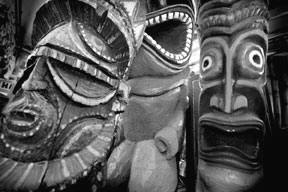 Here is another great quote from Henri Nouwen:
Here is another great quote from Henri Nouwen: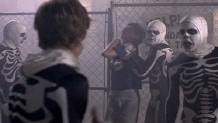 Adolescents often verbalize those statements that they’ve agreed with, declaring that they are “unlucky” or “dumb.” It would be easy to dismiss those sentiments as nothing more than teen angst, but let’s look at what is really happening on a deeper level. For example, if Danielle is spurned by a boy that she really likes, she might be presented with the lie that she is “unlovable” or “unattractive.” If she, in her mind and heart, agrees with this assessment—however absurd—she will begin to behave as if she were unlovable or unattractive. This behavior in turn will invite others to treat her in the same way. In essence, we teach others how to treat us. When Danielle hears these messages from both herself and others around her, she may be tempted to evaluate other situations in her life through the same discouraging lens.
Adolescents often verbalize those statements that they’ve agreed with, declaring that they are “unlucky” or “dumb.” It would be easy to dismiss those sentiments as nothing more than teen angst, but let’s look at what is really happening on a deeper level. For example, if Danielle is spurned by a boy that she really likes, she might be presented with the lie that she is “unlovable” or “unattractive.” If she, in her mind and heart, agrees with this assessment—however absurd—she will begin to behave as if she were unlovable or unattractive. This behavior in turn will invite others to treat her in the same way. In essence, we teach others how to treat us. When Danielle hears these messages from both herself and others around her, she may be tempted to evaluate other situations in her life through the same discouraging lens. happens next? A subtle voice speaking in your mind delivers a disparaging message—a fiery dart aimed right at your heart—suggesting:
happens next? A subtle voice speaking in your mind delivers a disparaging message—a fiery dart aimed right at your heart—suggesting:

